We start Day 1 of Amplifying Black Voices in Publishing with author, speaker, philanthropist and educator Gael-Sylvia Pullen. I had the pleasure of working with Gael-Sylvia on her wonderful book, The Good Around Us: Living and Leading from a Place of Joy, Even in the Joyless Moments. And I also made a guest appearance in one of her international classes for the nonprofit organization Girls Fly! Gael-Sylvia has been an inspiration and I’ve also been witness in a small way to some of her pain around racism. She was generous to take much time discussing the issues for this interview.
Where to Start with Amplifying Black Voices in Publishing?
Lisa: When it comes to understanding racism: history/how we got here, uncovering our own unconscious biases, learning what we can do in terms of our own behaviors as well as contributing to societal, legal and institutional change, where do we start?

Gael-Sylvia: Start by rallying to have Black people, Black men, Black children, Black women, et al. grammatically corrected to a capital “B” in Merriam-Webster’s Dictionary and academic environments! This will distinguish us from black objects, black animals and non-human references to color. This and the continuous use of the word “minority” are deemed as “justifiable” daily norms that are antiquated and inaccurate.
The “majority” population will never refer to itself as “majority” or “dominate” race, but can keep a stronghold on that position by keeping non-White people referenced as minorities. Example, “Non-Hispanic whites totaled about 197,181,177 or 60.4% of the U.S. population.” Add all the other races and the population count belies this minority reference.
The same fight had to happen to have Negros eventually acceptable with a capital “N.” Reference The Cornerstone Speech.
Lisa: It makes so much sense that we need to revise the Dictionary and our language and usage guides as well and yet it’s not something I thought about. Thank you.
[bctt tweet=”As writers, how can we best use our voice and platform to Amplify voices of African Americans?” username=”LisaTener”]
Gael-Sylvia: Write Op/Ed pieces. Write from a place of listening. Write about the hard questions that perplex non-Black Americans.
Having the Tough Conversations
Lisa: As authors and bloggers, what can we do better to uncover our own unconscious biases and write inclusively? What questions should we ask ourselves before pressing “publish” on a blog post or submitting our chapters to our publishing house?
Gael-Sylvia: In order to use the power of the pen and address things that affect African Americans. I’m just going to have to call it the way I see it. This moment in time is unlike any other moment in time. It’s not one of those kumbaya moments. This is not the same conversation, nor should it be.
The opportunity for writers, especially Caucasian or non-African American writers to use their voice authentically, genuinely, they have to be willing to write about the tough parts of the conversation.
 It could be,
It could be,
- Why don’t I have diverse friends?
- What opportunities, relationships and potential friendships maybe in front of me that I have been missing?
- How are the beliefs of my family history being repeated and sustained into future generations of my own family?
- Which parts of my own attitude are not necessarily true, especially given the historical context of what was formerly considered acceptable?
“It’s a Mindset.”
Lisa: These questions go deep. I’m hearing you say that before we can write about it, we need to go deep inside, essentially have a tough conversation with oneself, to explore what’s there.
Gael-Sylvia: It’s a mindset, not just a cultural color list. Non-Black people need to choose to change by pausing to reflect, redirect and correct behaviors within the environments of their own communities.
We had lived almost three years in a new city and predominately Caucasian community. One snowy morning I saw two neighbors walking by just as I was leaving for a morning walk.
Although I was joking with my son, I exaggerated a real heart desire of the time: I pretended to be running to catch up to them softly yelling, “Hello! Hello! May I be your friend? May I get to know you?!”
The poignant point of that memory is that they saw me all those years and always walked by as if they never saw me. I was never invited to get to know them and that was the takeaway even when they periodically would wave and say good morning. It is most often my responsibility to make the first move and show that I am friendly and able to put others at ease. The current events reaffirm how exhausting this is, especially for our Black men.
- Who might you be walking by?
- Who is in your environment that may have been opened to getting to know you before?
Right now may not be the sincerest time to reach out, but this is a prime opportunity to get to know the workings of your heart and mind. Doing that internal work now will result in future relationships that are genuinely accepting and mutually beneficial.
I see most of the same people every morning. I say good morning. For more than nine years not one of them says anything. They even walk their dog on the sidewalk …so I have to walk in the street.
I’m through with that. Now everybody says good morning. Everybody is suddenly friendly to me and my husband. They don’t cut me off in the crosswalk. Now everybody waits for me to completely cross the intersection before completing their turn. It’s a trip.
If there was ever a time for the power of the pen to authentically show up and write from your perspective genuinely now is that time. Now is the time for authors to capture this moment within their own personal history. I hope your children and my grandchildren will be able to reference that and see that it’s never too late for personal change. And that our personal change can create national change. We need reform at every level.
To Amplify Black Voices, Listen!
Lisa: So it’s important to sit with our own personal complicity. The things we don’t want to look at about ourselves.
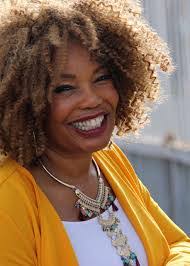 Gael-Sylvia: Yes. Be informed. Be open. Listen. Listen. Truly look, listen and learn. The authenticity of being able to sit with the uncomfortable question and try to process that individually is the power of the moment for non-African Americans. It’s not about, “Tell me what I need to know.”
Gael-Sylvia: Yes. Be informed. Be open. Listen. Listen. Truly look, listen and learn. The authenticity of being able to sit with the uncomfortable question and try to process that individually is the power of the moment for non-African Americans. It’s not about, “Tell me what I need to know.”
This is not a circumstance like, “Help me understand so I can process through you what I am missing.” It’s really looking personally at your own space and decision-making based on comforts, conveniences, opportunities.
Lisa: Yes. And what questions can we ask ourselves?
Gael-Sylvia: Answer this:
- What does your world look like?
- Who do you interact with? And why?
When people reflect at a personal level, when people have to pause and reflect on the fundamental questions, they’ll make decisions from one of two places:
- It makes me uncomfortable so I’ll just stay where I am.
- It makes me uncomfortable but I don’t think this is where I’m supposed to stay and be. I don’t want my children to be comfortable with other people’s discomfort and tragedies.
Diversify Your Beta Readers
Lisa: This is such an important point. And I want to bring it back to publishing, for a minute, to what we read as readers. I read some diversity of authors, but I only recently realized that I read way more White authors than anything else.
This spring I read The Water Dancer by Ta-Nehisi Coates and it was so beautiful, but a hard book to read. A really hard book. Because you know that, even though it’s fiction, the details, they’re not a fantasy. And the sheer brutality, the inhumanity and suffering caused by slavery is hard to bear. And, many of us are only just waking up to how the institution of slavery is carried forward through our prison systems, our laws, the lack of accountability and consequences of murdering and beating Black people.
When giving our work to beta readers, are there particular questions we should ask that will help uncover biases and/or racism?
Gael-Sylvia: You make an important point, Lisa. For example, you are an avid reader, but when you consider whose works you are reading you realized that your selections weren’t as diverse as you thought. This personal shift of awareness caused a change within you. That change happened because you were open and desired to expand your circle.
Such changes also change our conversations. Even it if isn’t your story, it can be hard walking through the life of another, but you have the convenience of pressing pause and coming back to it if and when you so desire. This is a significant example of what is missing from most conversations: Who and what can I do differently to expand my own conversations that can influence transformative, sustainable change within me?
Lisa: Some of our readers may not have a wide or diverse social circle. If they want to reach out to gather a more diverse group of beta readers, do you have suggestions for how they can find appropriate beta readers?
Gael-Sylvia: Truth be told: There is a reason non-Black people don’t have a wide or diverse social circle: As Black people we have to diversify our social and cultural awareness in order to move forward. Non-Black people do not. We are trained to be bi-cultural and multi-cultural. Bi-cultural in White American thinking and expectations. Multicultural if we choose to expand to be global citizens. It’s more comfortable for non-Black people to stay with those who are like them in as many ways as possible.
Everyone can diversify their social circles when sincerely open, curious and willing to move outside of their comfort zones. In my opinion, unless they are writing about the “why they don’t have a wide or diverse social circle, the beta readers will feel how in-genuine their attempts may be. For example, I recently listened to a Caucasian lady say, “I’ve learned so much about myself these past few weeks! If these atrocities are really happening, this is terrible! I get it! Now, I get it!”
Her audience, readers of her lifestyle blog and her decision to move on because suddenly “she gets it!” It was a failed attempt to show understanding and her words “if this atrocity is happening…” confirmed that she not only didn’t get it, hadn’t learned enough and was ready to move on.
Most people make decisions based how they prioritize the 3 Cs in their life: comfort, convenience and for Christians, Christ. In this order. It was inconvenient to her personal and business goals to do anything more than she did, which was nothing. I address some of this here.
What Distinguishes This Moment…
Lisa: Yes, I think there is this human desire to acknowledge (which that woman didn’t even really do) and then move on. Let’s not stay in this uncomfortable place. But it feels different this time. I think some of that is the power of social media, the footage captured from body cams on the police, the images we can’t help but see and remember—and the sheer number of deaths and beatings we are seeing repeated over and over.
How can the publishing industry do a better job of getting established authors of any background to mentor and sponsor aspiring African American authors and help them get published?
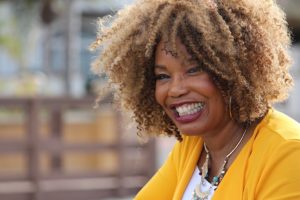 Gael-Sylvia: I think that Deborah Santana and others are more experienced in answering this question. It MIGHT be worthwhile to have publishing leaders, literary agents and others convene a series of gatherings ONLY if they are prepared to make change. People are tired of talking, informing and comforting others as we continue to experience the same generational tragedies while life move forwards for others.
Gael-Sylvia: I think that Deborah Santana and others are more experienced in answering this question. It MIGHT be worthwhile to have publishing leaders, literary agents and others convene a series of gatherings ONLY if they are prepared to make change. People are tired of talking, informing and comforting others as we continue to experience the same generational tragedies while life move forwards for others.
What distinguishes THIS moment in race relations in American history is that Black people are tired, fed up and reform at every level is essential beyond this news cycle. WE CANNOT go back to our old normal, although everyone else can hardly wait.
Lisa: Yes, let’s not waste people’s time and energy with another “task force” activity where information is gathered and no meaningful change takes place.
In our earlier conversation you mentioned some things about writer’s voice in relation to what’s going on in our society at large right now. Can you speak to that?
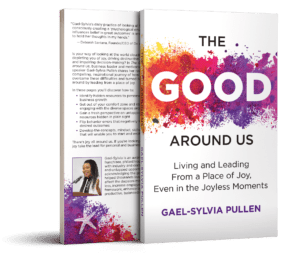
Voice
Gael-Sylvia: When I was writing The Good Around Us you and Kelly [Malone] both told me about writer’s voice, that the reader can feel and hear the writer’s heart, their mind. Especially for the non-Black writer, it will come back to how genuine you are in your own life about your role and choices and how that’s reflected in your own life.
For writers to be able to write from the place of what they don’t understand, wrestling through, don’t know that they don’t even know, that will help move the needle. That’s introspective work.
Lisa: Yes. Good writing isn’t just writing about what you know. It’s taking a path and wandering into new territory, including the uncomfortable, The uncharted land that’s been uncharted because we resist going there.
Just a few days after your book launch on May 20, George Floyd was murdered by police on May 25. How are you integrating this?
“How are you doing?”
Gael-Sylvia: Right after the book launch, I was spinning. We live in an all White beach community. People used COVID to try to get us to move. My biggest concern was my husband or son getting shot because they had to wear a mask during COVID. The fear, tears, anxiety I feel and then to have people ask me, “How are you doing?”
I couldn’t respond because I was trying to figure it out myself. This is not like other times. Not at all and it shouldn’t be.
People say, “I”ll be so glad when things go back to normal.” Not me. I don’t want their normal. I don’t want my husband and son to go back to being privately anxious every time they go into a store with a COVID-19 required mask.
I don’t want the Black men in my life and our little grandsons to have to put others at ease because of their size, intellect and skin color. I don’t want them to return to it being normal for them to internalize their fears, anger and frustrations because they will be viewed as a threat and their presence assumed to be a villain. I personally, don’t want to go back to another hospital ER or cardiac care unit and be called a “angry Black woman” because I requested a second opinion on a procedure when it turned out I actually didn’t need the first procedure strongly recommended.
I don’t want to go back to having to put on a full face of make-up, jewelry and business attire before 911 is called so that they will distinguish me from being “another poor Black woman who probably doesn’t have medical insurance.”
I don’t want to go back to this and more as our normal because the current events make others to uncomfortable watching an 8:46 news clip of a horrible event that has happened throughout our community for generations.
[bctt tweet=”If 8 minutes and 46 seconds makes someone uncomfortable, try living it as a daily fear for generations.” username=”LisaTener”]
Each generation has to have two conversations with Black males when they turn 16 years of age:
1) What to do when the police stop you. Not if. When! It is guaranteed if you are a Black male and not unusual as a Black female.
2) The sex talk.
I do really want to write about this. I want to write an op-ed piece on some portion of this. I’m not sure how to do that.
Lisa: I encourage you to write about it. We talked about the Op-Ed Project. That may be a good place to start and get guidance and support.
Finding Joy Even in the Joyless Moments
Regarding your subtitle, How do we “find joy in this joyless moments?” Where are you with that now?
Gael-Sylvia: The answer is, “There will be a new normal.” This has been unfolding in different stages. When I get back to my morning gratitude. I feel such a fervor, a raw open wound that’s so unfamiliar to me.
I have to sit with it, not be afraid of it, work through it. I have to name it. Once I recognize it, I have to define it in within the context of my values, personality, who I want to be, vs. my environment. It’s evolving for me as a Black female. It’s a whole different deeper broader space for Black men right now. It pains me. Each of us is having to figure it out, walk through it. Enough is enough.
I’ve written a couple of chapters in my journal that went from listing the wide range of racist experiences I have experienced, not including my husband, son, father, brother or others.
Although I was writing in my personal journal, I felt as if I was writing in a surreptitious, secret manner so not to offend anyone else. By entry number 323 I started filling in the details of not only the experience, but the feelings I had apparently been forcing to stay down and out of sight.
These feelings did more than bubble up to the surface of my grieving soul. They rushed up like a geyser in the wake of Mr. Floyd’s death and others.
I should have written these thoughts a long time ago, but life was normal then because these acts were a normal part of my life. There is a freedom within these current circumstances. But it is from the inside. That’s why I’m saying, for non- Black authors and writers, they need to be self reflective – not just about self but about their sphere of influences. COVID-19 has given us a time of recalibrating what’s essential in our lives beyond the grocery store shopping list. With this social unrest, it is a gift and opportunity for us to look at what is essential in our mindset and what is not.
Am I feeling Joy? No. But is there still joy in the good that is around me? The answer is yes but it’s not getting my full attention right now, because that will cause me to sweep everything else under the bedroom rug as if it’s been resolved.
Coming to Terms with the Church
But I also can’t stay where I am at because I don’t want to become a joyless, bitter person.
All of us have this opportunity to ask, what’s essential and what’s not?
For those of us in Black and Brown skin, comfort often doesn’t get factored in. You gotta do what you gotta do. You just keep moving.
Right now, everyone needs to sit with discomfort and learn something from it. That will help ground future joy, because there will be a peace. Right now, there can’t be a peace. We are in the middle of a storm. I’d be deceiving myself if I pretend it’s all good.
When we come out of it, I don’t know what that will look like. My hair might be standing up on my head.
For me [as a Christian], there is also the Christian faith component. It’s complicated. The complicity of the Christian church historically–that’s fuel to the fire.
The Christian Church is not getting off easy on this one. The prayers for peace didn’t happen with the death of Black men. It became a priority once protest and riots commenced.
You can’t hide behind Jesus and say everything will be all right as a way to justify not needing to care. We’ve been having those tough conversations for generations and the Christian church needs to [be in that conversation].
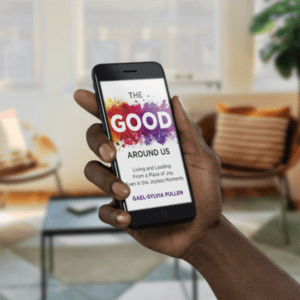 Lisa: Thank you so much for taking the time to be with me and our readers—authors, aspiring authors, bloggers, publishing professionals and others. I appreciate what a deep dive you take here and the thoughtfulness you put into your answers.
Lisa: Thank you so much for taking the time to be with me and our readers—authors, aspiring authors, bloggers, publishing professionals and others. I appreciate what a deep dive you take here and the thoughtfulness you put into your answers.
I wish you the best with your book launch. The Good Around Us: Living And Leading From A Place Of Joy, Even In The Joyless Moments Your message is so timely.
Since we began working together, your loving and compassionate and deep nature, your integrity and warmth, have been an inspiration to me. I’m delighted that your voice and your message is reaching more and more people with this beautiful book.
Read our other interviews in the “Amplify Black Voices in Publishing” series interviews with Dr. Froswa’ Booker-Drew, Ali Raja, MD and Dr. Tiffany Love.
About Gael-Sylvia Pullen
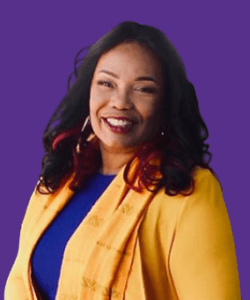
Gael-Sylvia Pullen works globally with industry and community leaders to uncover the good around them. A former co-owner in the largest minority-owned commercial real estate brokerage firm in the state of California, Gael-Sylvia is the CEO of Girls Fly!, a transformational leadership company dedicated to developing high-functioning teams, and a retired award-winning McDonald’s franchisee.
Her path to approval as a hotel franchisee, ownership of a bilingual business radio broadcast, studies at the prestigious Waseda University in Tokyo, time served in the Peace Corp, and years in government relations positioned her for economic and philanthropic growth. Then the Great Recession hit, multiple deaths occurred, and a debilitating health condition kept Gael-Sylvia bedridden for fifteen months. During that time, she launched Sylvia Global Media Network, a global empowerment program, and developed a program designed to help herself and others live and lead from a place of joy. Gael-Sylvia has recovered from her illness and returned to being a joyful, healthy wife, mother, grandmother, and ballroom dancer. She lives in Seal Beach, California, with her husband of forty plus happy years.
The Good around Us: Living and Leading from a Place of Joy, Even in the Joyless Moments is the first in a series of books Gael-Sylvia is writing about business, personal growth, and leadership. The series focuses on personal growth, philanthropy, and business, including empowering employees and community engagement to go beyond brand, goodwill, and profitability.



Hi- This was breathtaking, informative and real.
I read every word without a pause and want to read it again or more.
I am inspired with the ease, authenticity and scope of your work.
Thanks for sharing.
Thank you, Hazel!
Gael Sylvia just sent me a link to this article and asked me to add it. American students may start seeing Black capitalized in their history textbooks – CNN